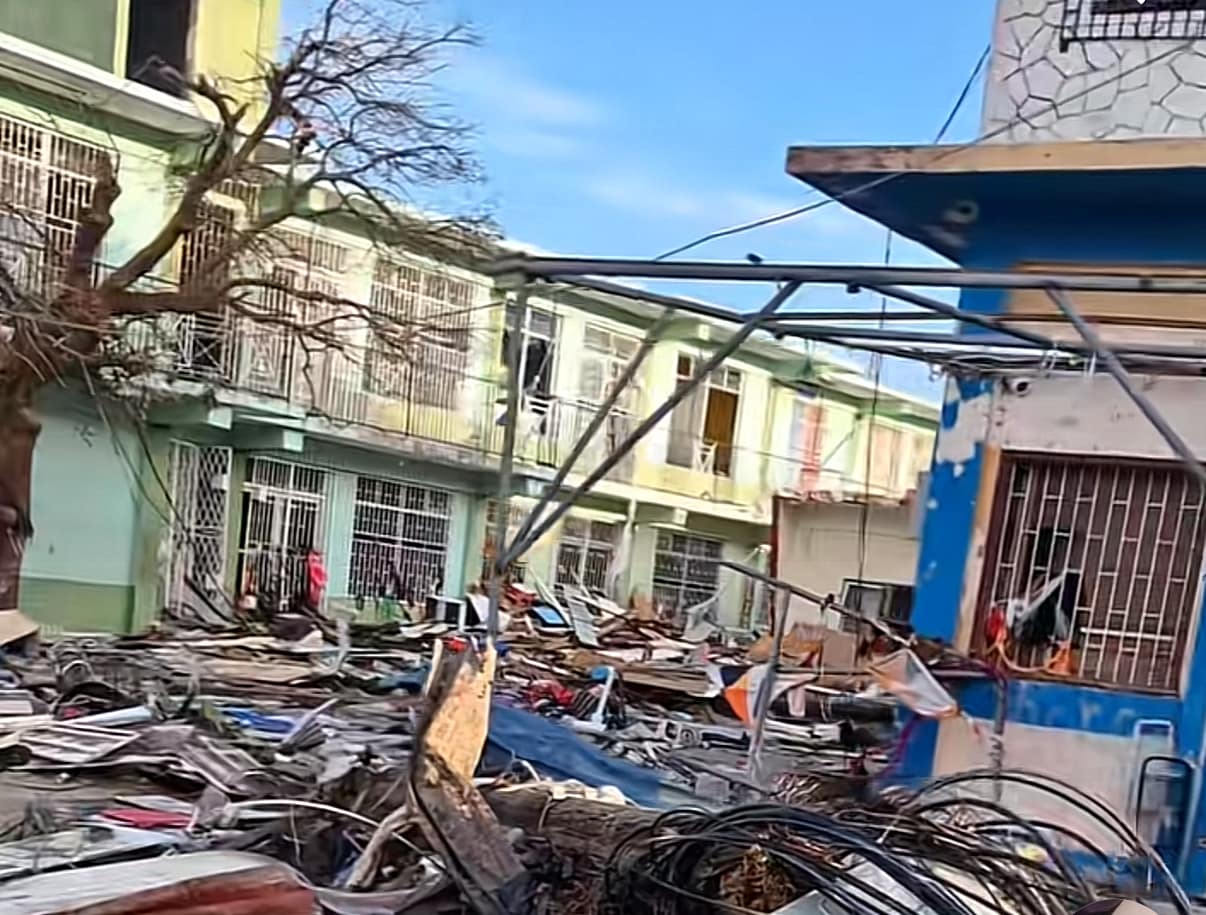

World Bank, IDB Estimate Hurricane Melissa Damage to Jamaica Totals All-Time-High of US$8.8 Billion
The World Bank, in coordination with the Inter-American Development Bank (IDB), estimate that the physical damage to Jamaica caused by Hurricane Melissa totals US$8.8 billion — equivalent to 41 percent of the country’s 2024 GDP— making it the costliest hurricane in Jamaica’s recorded history. The Global Rapid Damage Estimation (GRADE), conducted immediately after the hurricane, assessed physical damage across residential, non-residential, infrastructure, and agricultural sectors. It does not include broader economic losses, which are expected to be even more significant.
The GRADE assessment will inform a more detailed evaluation of damages and economic losses by sectors as part of a collaboration with the Inter-American Development Bank and the United Nations Economic Commission for Latin America and the Caribbean (ECLAC), and, under the leadership of the Planning Institute of Jamaica.
According to the preliminary findings, 41 percent of the assessed damages were to residential buildings, 33 percent to infrastructure, 21 percent to non-residential buildings, and 5 percent to the agriculture sector, including livestock and related infrastructure. While physical damage to agriculture is comparatively lower, the sector is expected to face significant economic losses.

“Jamaica will soon be advancing into the reconstruction phase following the impact of Melissa,” said Susana Cordeiro Guerra, World Bank Vice President for Latin America and the Caribbean. “The country’s resilience, strong leadership, and collective determination will guide the recovery and help rebuild lives and restore opportunity. The World Bank stands firmly with the Government and people of Jamaica as they transition from response to reconstruction. We are ready to mobilize our full range of support in collaboration with other international development partners to help deliver a resilient and inclusive recovery.”
“The scale of damage caused by Hurricane Melissa demands a fast, coordinated, and evidence-based response,” said Anabel González, IDB Vice President for Countries and Regional Integration. “The IDB is fully committed to supporting the Government of Jamaica, beginning with a clear understanding of Hurricane Melissa’s impact, as the country moves from emergency response to reconstruction. Together with our partners, we will help Jamaica rebuild stronger, safer, and more resilient.”
Jamaica’s comprehensive disaster risk financing system has positioned the country to respond to a range of impacts using multiple financial instruments. A disaster of this magnitude, however, will require scaled-up and well-coordinated efforts and partnerships. The World Bank and the IDB are supporting the Government of Jamaica through contingent financing, technical assistance—including mechanisms like GRADE—and long-term support to coordinate resilient recovery and reconstruction.
The GRADE methodology provides an independent, rapid estimation of physical post-disaster damage, offering an initial sector-by-sector quantification of a disaster’s severity.

The GRADE report for Jamaica was conducted and financially supported by the Global Facility for Disaster Reduction and Recovery (GFDRR) and the Ministry of Finance of Japan, through the World-Bank program for Mainstreaming Disaster Risk Management in Developing Countries in collaboration with the World Bank.
Access a copy of GRADE report for Jamaica here.
Advertise with the mоѕt vіѕіtеd nеwѕ ѕіtе іn Antigua!
We offer fully customizable and flexible digital marketing packages.
Contact us at [email protected]













